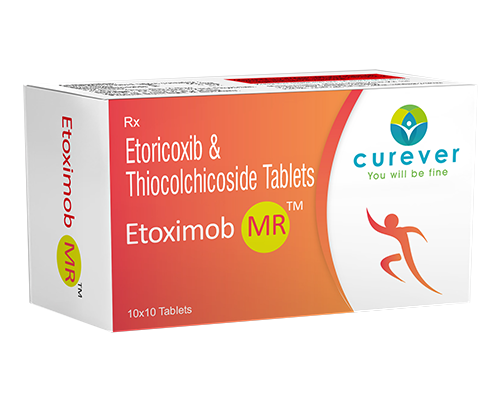• This medicine may cause fatigue and dizziness. You should take care when performing potentially hazardous activites, such as driving or operating machinery, until you know how this medicine affects you and are sure you can perform such activities safely.
• NSAIDs, including COX-2 inhibitors such as this one, can occasionally cause serious side effects on the gut, such as ulceration, bleeding or perforation of the stomach or intestinal lining. This type of side effect is more likely to occur in elderly people and in people taking high doses of the medicine. The risk can also be increased by taking certain other medicines (see end of factsheet). It is important that these people, as well as people with a history of disorders affecting the stomach or intestines, are closely monitored by a doctor while taking this medicine. All people taking this medicine should stop treatment and consult their doctor immediately if they experience any sign of bleeding from the stomach or intestine during treatment, for example vomiting blood and/or passing black/tarry/bloodstained stools.
• COX-2 inhibitors may carry an increased risk of heart attacks and stroke when compared to placebo (no treatment). If you have risk factors for heart disease or stroke, such as diabetes, high cholesterol or smoking, your doctor will need to assess the overall benefits and risks before deciding if this medicine is suitable for you. In general, if this medicine is suitable, your doctor will prescribe the lowest effective dose for as short a time as possible to control your symptoms, because the risks may increase with higher doses and the longer the medicine is taken. Do not exceed the prescribed dose. Tell your doctor if you experience shortness of breath, chest pains or ankle swelling while taking the medicine. Ask your doctor or pharmacist for further information.
• Your blood pressure should be regularly monitored while you are taking this medicine, particularly in the first two weeks after starting treatment.
• If you have any problems with your kidneys, liver or heart function, your kidney function should be regularly monitored while you are taking this medicine.
• During long-term treatment your doctor may want to take regular blood tests to monitor your liver function. Consult your doctor promptly if you develop unexplained itching, yellowing of the skin or eyes, unusually dark urine, nausea and vomiting, abdominal pains, loss of appetite or flu-like symptoms while taking this medicine, as they may be signs of a liver problem.
• This medicine may hide fever, which is a sign of infection. This may make you think mistakenly that an infection is getting better when it isn't, or that an infection is less serious than it is. For this reason you should tell your doctor if you get an infection while you are taking this medicine.
• Very rarely, NSAIDS may cause serious blistering or peeling skin reactions (eg Stevens-Johnson syndrome, toxic epidermal necrolysis, exfoliative dermatitis). For this reason, you should stop taking this medicine and consult your doctor if you get a skin rash or sores inside your mouth while taking this medicine. This side effect is very rare, but if it occurs, is most likely to happen in the first month of treatment.
